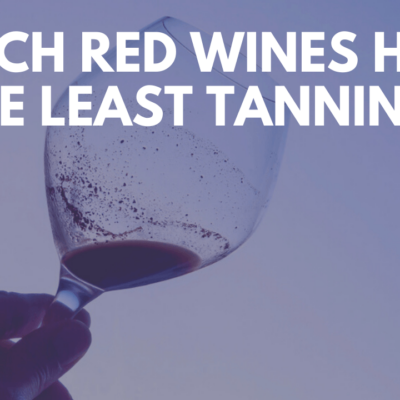
While wine is more popularly consumed for its distinct flavors of the specific varietal, year, and style, there are others who drink wine not just for the taste, but for the health benefits that come with it. Because white wine and red wine are quite different in appearance and flavor, I wondered if there were differences in the health benefits of each as well.
And it’s not just rumors and speculation – research has proven the positive effects of consuming wine, and even some of the healthiest communities in the world consume wine on a daily basis.
But wine is prepared differently – red wine is made with the skin and seeds still intact with the grape itself, whereas white wines are made by removing those parts of the grape. Then there’s the fact that red and white wines also usually use different grapes altogether. With this many differences between the two most popular versions of wine, there are bound to be differences in their health benefits as well.
So to make things a lot easier for you readers out there, we’ve gathered all the different health benefits of red wine versus white wine, and compared the two to see which one is an objectively healthier alternative to the other.
The Benefits Of Red Wine
Red wines are quite healthy and pack some serious health benefits. Even before modern medical science, societies believed in the power of red wine, using it to remedy many different diseases and cure illnesses. Perhaps that is why so much research has gone into the study of red wine in particular, and its medicinal effects.
But enough about history. Let’s look at some science! One of the biggest factors that make red wine such a healthy drink is the presence of reservatrol. Reservatrol is a compound that’s normally found in plants and is used to fight off both bacteria and fungi alike. It’s also known to help protect plants from UV radiation.
When ingested in the human body, this chemical has many different health benefits. For one, it serves as an antibacterial compound, similarly to how it behaves in plants. Cavities, for example, can be minimized with the help of reservatrol. Other than just promoting healthier teeth, however, red wine has plenty of other advantages to the human body.
Promotes Cardiovascular Health
One medical study suggested that red wine has the capability of reducing the risk of heart disease in people who drink it. This is said to be due to the effect that red wine has on a person’s gut microbiome.
Prevents Brain Damage Due To Stroke
Another study found that the risk of brain damage that comes from a stroke can also be minimized with red wine consumption. The reservatrol that’s found in red wines was discovered to produce oxygenase in mice, an enzyme that keeps brain cells from getting damaged. This means that in case of a stroke, there are enough enzymes in the body to, at the very least, minimize the brain damage that comes with it.
Boosts Omega 3 Fatty Acids In Your Body
Omega 3 fatty acids are most commonly found in fish and other seafood. This chemical is known to keep your body healthy against heart disease. However, Omega 3 fatty acids aren’t only found in your favorite tuna casserole – red wines have the ability to boose Omega 3 fatty acids in the body. This study, that was conducted on over 1,500 adult participants, found that moderate wine drinkers had higher levels of this fatty acid.
Minimizes Risk Of Vision Loss
If cardiovascular disorder and brain damage prevention weren’t good enough reasons for you to drink some red wine, then you should know that studies have linked red wine with vision loss. And, like the other benefits mentioned before, this has been linked to reservatrol as well. In particular, reservatrol has shown promise in minimizing and preventing diabetic retinopathy (vision loss due to a complication in diabetes).
Lowers Risk Of Depression
They say alcohol isn’t the solution to your problems, and while that statement is very much valid, a study conducted in Spain may prove to be a rare exception. The study found that adults who drank wine moderately every week had a lower chance of being diagnosed with depression, even after considering different lifestyle factors.
Now, we could talk all day about the many reported benefits or reservatrol. But this enzyme is just one of many different enzymes found in red wine, known as polyphenols. Polyphenols are compounds that are naturally found in plants – many of which are antioxidants with various properties. There are other polyphenols found in red wine, such as anthocyanosides, catechins, and proanthocyanidins, though they aren’t as popular as reservatrol.
So in summary, most, if not all of red wine’s health benefits come from the enzyme reservatrol, which is linked to many positive effects on the body. But what about white wines?
The Benefits of White Wine
Unlike red wines, white wines haven’t had much popularity, and therefore research, when it comes to its health benefits. And this isn’t just because of some arbitrary reason like the taste – white wines simply lack reservatrol, the enzyme that’s responsible for the many health benefits wine is associated with.
White wine does actually contain polyphenols just like red wine, though the amount is substantially smaller. Specifically, white wine only has about a tenth of the polyphenols you’d normally find in the red variant. This is due to the fact that white wines do not contain the seeds or skin of the grape, which is where many of the grape’s natural polyphenols are found.
That doesn’t mean, however, that white wine has no nutritional value or beneficial properties at all. A study found that white wine is healthier than gin. Now I know what you’re thinking: “But you’re comparing white wine to an alcoholic drink with no health benefits at all!” But that’s the point: by proving that white wines have more health benefits than something that has none, we can conclude that white wines do, in fact, have benefits exclusive to itself.
But what are these health benefits, exactly? Well, here they are:
Repairs Endothelial Cells
Remember that study we just mentioned between white wine and gin? Well, that study found that white wine contained polyphenols that helped repair endothelial cells. For those unfamiliar with the term, endothelial cells are the cells that line up your blood vessels. This means that white wine can potentially prevent cardiovascular disorders or problems.
Decreased Chance Of Alzheimer’s Disease
Here’s something red wine can’t do, at least in the same way as white wine – minimize the risk of Alzheimer’s. Why do I say that? Well, this study fed mice polyphenols that were exclusive to white wines only and found that those mice had a lower risk of developing diseases like Alzheimer’s.
Reduced Kidney And Liver Problems
One study found that caffeic acid, a polyphenol found in white wines, is responsible in reducing the risk of complications in both the liver and kidneys.
While there aren’t too many known health benefits associated with white wines, this is partially due to the lack of research that’s gone into white wines in the first place. Who knows, maybe someday white wines will be discovered to have the same if not more benefits to one’s health, though only time will tell.
Now that we know the different benefits that each variant of wine is associated with, it’s time for a side-by-side comparison to see which one is better than the other (spoiler alert: it’s not even close).
So, Red Wines Or White Wines?

Let’s take a look at the basic nutritional value one can get from a serving of red and white wine. Healthline has a great table of nutritional values that gives you a clear winner in this category. Looking at the table, we can see that red wines are just better versions of white wine across the board.
Both red and white wines contain the same amount of carbohydrates and sugar. But once you take a look at the vitamins and minerals they contain, you see a different story. Most of them are found in greater amounts in red wine, such as Potassium, Iron, and Niacin. There are a few vitamins and minerals that are somewhat the same in amount, like Vitamin B6 and Magnesium, but for the most part red wine provides more than white wine.
And while white wine contains 4 fewer calories than red wine per serving (121 compared to 125), are the 4 calories really that important to miss out on the other benefits of reds? Probably not.
Add that to the plethora of benefits associated with red wine, and you’ve got yourself the better choice. While white wine may have benefits of its own, red wine has so many more known advantages that there’s no room for competition. So until more research is done and we find better evidence of white wine’s health benefits, red wine takes the cake.
Don’t be discouraged when you sip your next glass of Champagne, though – both wines are good for the body in moderation; one’s just simply better than the other in that regard.









 7 Weed of the Month Clubs that will Blow Your Mind
7 Weed of the Month Clubs that will Blow Your Mind
Leave a Reply